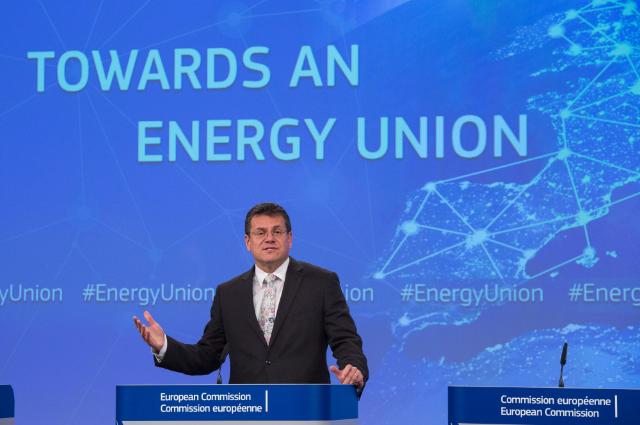BRUSSELS: The European Commission today presented a package consisting of four legislative proposals which aim to enhance European energy security. Central to this challenge is the future of gas in the European energy mix. The EU has been clear: This future is short.
In response to the package, Bellona President Frederic Hauge said that “what the EU has presented today tells us two things: That gas will be important for a while still, but not without carbon capture and storage. Unless Norway actually builds such technology, they need to stop their gas-crusade and place not just a part, but all of their attention on alternative energy sources, for instance the interconnections to be built between Norway and the UK and Germany.”
“It’s not the first time the EU is clear on investments in gas and LNG infrastructure risking fossil lock-in, if one doesn’t plan for CCS. This is determined already in the EU’s 2050 Energy Roadmap”, Hauge continued.
“When it comes to Norway, they continue talking about gas as a bridge, but it could just become a bridge to high future emissions,” Hauge concluded.
It is therefore good to see the LNG strategy addressing this risk, as it reads: Energy efficiency measures and lower carbon sources such as renewables are also crucial, and care should be taken with regard to investment in LNG or gas infrastructure to avoid the risk of technology lock-in or stranded assets in fossil fuel infrastructure.
The EU’s Vice-President for Energy Union Maros Sefocvic and Climate and Energy Commissioner Miguel Arias Cañete today presented the much awaited ‘energy security package’.
The EU’s energy security package presented in Brussels today comprises four pieces of legislation:
- Revision of the Regulation on Security of Gas Supply which intends to improve the EU’s resilience to supply disruptions
- Revision of the Intergovernmental Agreement (IGA) Decision which will increase transparency and ensures that IGAs in the energy field comply with applicable EU legislation and policies
- Strategy for Liquefied Natural Gas (LNG) and gas storage which ensures that the EU can take full benefit of the diversification potential offered by Liquefied Natural Gas
- Strategy for heating and cooling that aims at identifying energy saving potential in heat and cool buildings and industry
With these proposals the Commission seeks to:
- Reduce energy security vulnerability by diversifying energy sources and increasing robustness through more energy storage capacity
- Increase the energy efficiency of buildings so as to reduce demand for fossil fuels
- Make it more difficult for operators to halt gas flows
- Strengthen internal European ‘solidarity’ by ensuring that in the case of a crisis energy is prioritised where it is most needed or people are most vulnerable
- View intergovernmental gas agreements before they’re signed and in cases where a country is particularly vulnerable to one supplier, get access to contracts so as to ensure one country’s short-term interests to not contradict the strategic interests of Europe as a whole
The EU’s Climate and Energy Commissioner, Arias Cañete said in a speech last week that “It is no coincidence that we launch the Energy Security Package at this time. The developments in the international energy context and the post-Paris scenario are posing new challenges that need to be addressed without delay.”
Today the EU imports 53% of the energy it consumes and some countries, particularly in Eastern Europe, depend for their gas imports on one main supplier – Russia. Diversification of energy sources has therefore been a central driver of both the European Energy Security Strategy and the overarching Energy Union initiative.
Climate change has been the other driver. With the EU’s 2030 targets of at least 40% greenhouse gas emission reductions, at least 27 % renewable energy and at least 27 % energy efficiency, the package presented today, particularly regarding heating and cooling, is a step on the way to a low-carbon economy.




